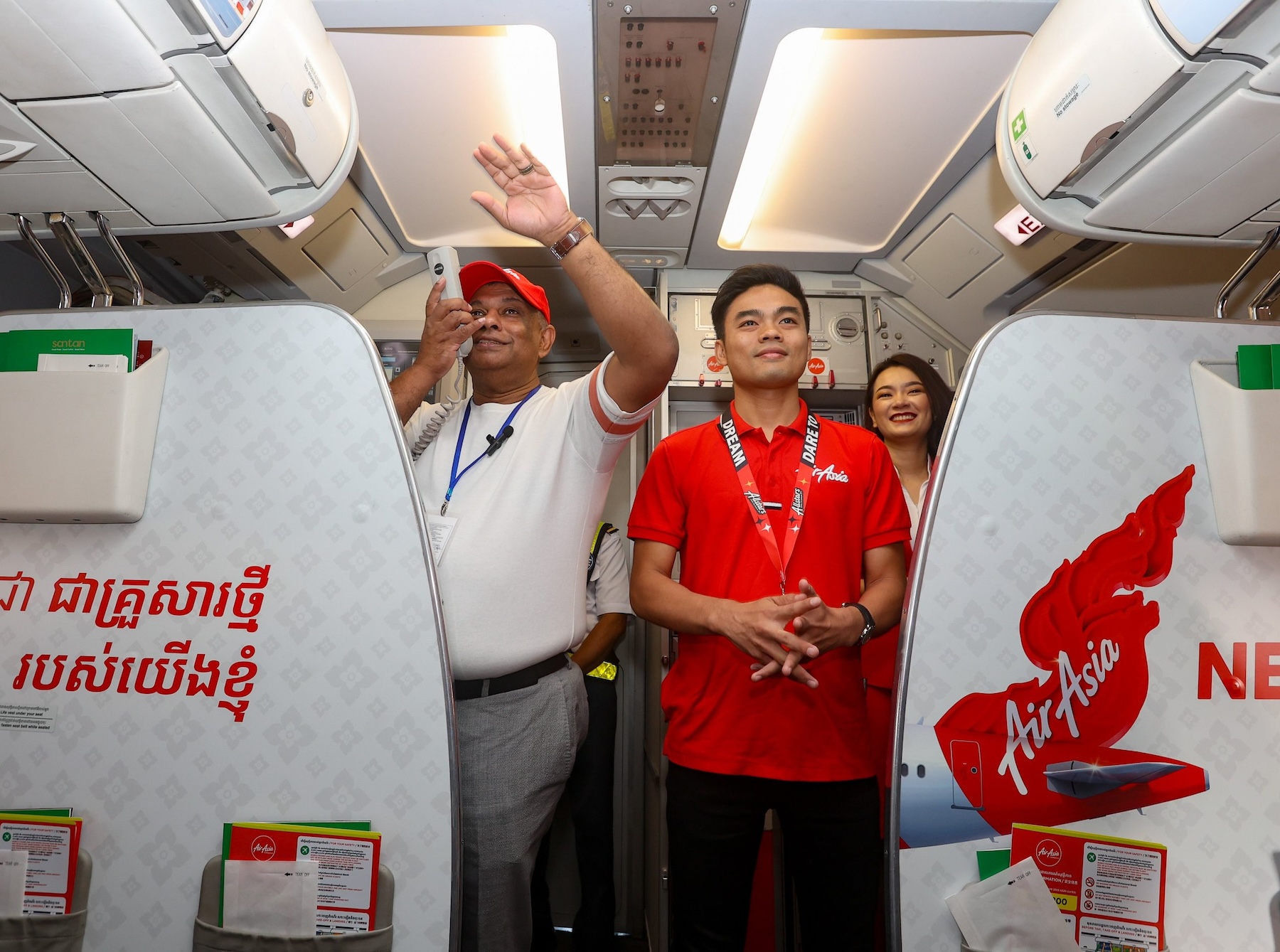
Emirates Refreshes Amenity Kits for Summer Season
This week Emirates has announced a new collection of Bulgari branded amenity kits for both first and business class passengers…

Boeing’s 737 MAX 7 lifts off for the first time. EASA says the aircraft family could be approved for European operation by the end of 2020. (Photo: AirlineGeeks | Chuyi Chuang)
In a press statement issued on Wednesday, the Federal Aviation Administration declared that recertification test flights for the Boeing 737 MAX have been completed and laid out the next steps required to approve the aircraft for a return to the skies.
During three days of flight testing, FAA pilots and engineers evaluated Boeing’s proposed changes in connection with the automated flight control system on the aircraft, believed to have been the cause of two fatal crashes. The flights, totaling approximately 7.5 hours, were carried out predominantly over Western Washington state and the Pacific Ocean.
In a public statement, the FAA said “While completion of the flights is an important milestone, a number of key tasks remain, including evaluating the data gathered during these flights. The agency is following a deliberate process and will take the time it needs to thoroughly review Boeing’s work. We will lift the grounding order only after FAA safety experts are satisfied that the aircraft meets certification standards.”
Boeing redesigned the Maneuvering Characteristics Augmentation System (MCAS) to ensure that a single point of failure would not repeatedly trigger the system to activate. The redesign included the addition of a second sensor and the re-coding of critical flight control system software to require both Flight Control Computers to trigger activation of the safety feature instead of just one.
An important next step in the FAA effort is to begin work with the Flight Standardization Board and the Joint Operations Evaluation Board members, consisting of representatives from Canada, Europe, and Brazil to define minimum pilot training requirements for the MAX. Pilot training, believed to have been a key factor in the accident aircraft, is considered to have been inadequate by 737MAX pilots, leaving pilots in the dark as to how the MCAS system worked. The FAA is expected to mandate additional pilot training for MAX crew members, now believed to include a revisit to flight simulators for all pilots.
An important component of the recertification requirement has been dealing with the 380+ aircraft that have already been delivered to the world’s airlines and over 400 aircraft Boeing has built and not yet delivered. The FAA grounded all 737MAXs in 2019 and now needs to outline the modifications needing to be done to the aircraft before they can be allowed to fly again. This step will likely consist of the issuance of an FAA Airworthiness Directive/s to force the accomplishment of the safety modifications and pilot training.
Despite the challenges facing Boeing, demand for the MAX remains strong with over 4,000+ orders still on the books. But the pandemic driven reduction in airline flying has caused some airlines to rethink their fleet strategies.
Last month, the 737MAX saw 14 net order cancellations. But Boeing realized 108 net order cancellations in April and 150 in March for the MAX. And recently, BOC Aviation and Norwegian Air canceled several Boeing orders, which included the MAX.
The FAA has not commented on when it expects to complete its’ recertification efforts but industry insiders expect to see the MAX back in service as early as the Fall of 2020. Perhaps in preparation for the coming recertification instructions, United Airlines recently relocated one of its 14 MAXs from storage in Goodyear, Arizona to a maintenance base in Orlando, Florida.
Rick is a retired airline maintenance professional with over 40 years experience in commercial, corporate and military aviation sectors. Rick holds an FAA Airframe & Powerplant (A&P) and a FCC General RadioTelephone Licenses. Rick is a veteran of the United States Air Force and has served in multiple leadership positions including Director of Maintenance for a large corporate aviation firm, airline Director of Engineering and has chaired multiple aviation maintenance safety and reliability industry committees. Rick took his first airplane ride at six months old and became an airline geek shortly thereafter.
Receive a daily dose of the airline industry's top stories along with market insights right in your inbox.

This week Emirates has announced a new collection of Bulgari branded amenity kits for both first and business class passengers…

AirAsia Cambodia started operations on Thursday with a historic inaugural flight, KT102, connecting Phnom Penh, Cambodia's capital, to Siem Reap,…

Kenya Airways (KQ) has suspended flights to Kinshasa, the capital of the Democratic Republic of the Congo (DRC). This decision was…



